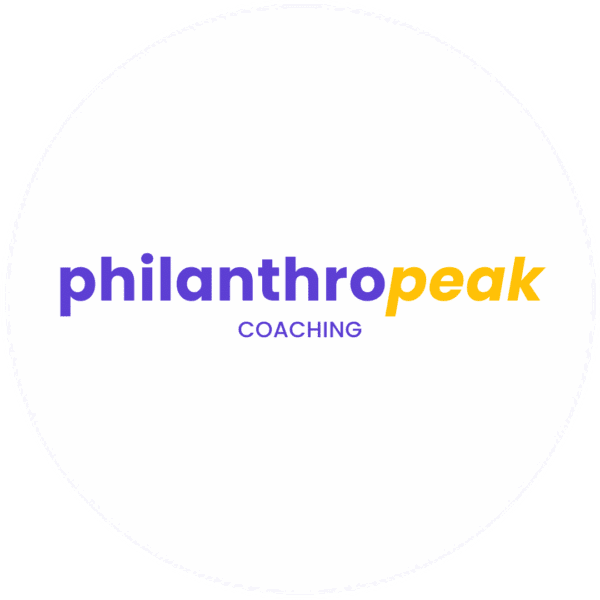Unlocking Potential: Coaching to Success in Personal and Professional Development
Table of Contents
ToggleCoaching is a powerful tool that can help individuals unlock their potential in both personal and professional spheres. By providing guidance, support, and a structured approach to growth, coaching can lead to significant improvements in self-awareness, emotional intelligence, goal setting, and overall well-being. In this article, we will explore how coaching can transform lives and careers, making it an essential element of personal development and success.
Key Takeaways
- Coaching enhances self-awareness, helping individuals understand their strengths and weaknesses.
- Effective coaching fosters emotional intelligence, enabling better relationships and communication.
- Setting clear, achievable goals is crucial for personal and professional success.
- A supportive coaching relationship is built on trust, open communication, and mutual respect.
- Coaching equips individuals with the tools to navigate challenges and embrace continuous growth.
Understanding the Role of Coaching in Personal Development

Coaching is a powerful tool that helps individuals on their personal development journey with a professional coach. It allows people to discover their strengths and areas for improvement. Here are some key aspects of how coaching contributes to personal growth:
Exploring Self-Awareness and Growth
Coaching encourages self-reflexion, helping individuals understand their thoughts and feelings. This self-awareness is crucial for personal growth. Coaches assist individuals in identifying their objectives, whether it’s improving communication skills, increasing self-confidence, or managing stress.
Building Emotional Intelligence
Emotional intelligence is the ability to understand and manage emotions. Coaches help individuals develop this skill, which is essential for personal and professional success. By recognising their emotions and those of others, individuals can improve their relationships and decision-making.
Setting and Achieving Personal Goals
Setting clear goals is vital for personal development. Coaches guide individuals in creating SMART goals—Specific, Measurable, Achievable, Relevant, and Time-bound. This structured approach helps individuals stay focused and motivated on their journey to success.
Coaching is not just about achieving goals; it’s about the journey of self-discovery and empowerment.
In summary, coaching plays a significant role in personal development by fostering self-awareness, emotional intelligence, and goal-setting. It empowers individuals to unlock their full potential and lead fulfilling lives.
Harnessing the Power of Coaching for Professional Success
Coaching is a powerful tool that can help individuals achieve their professional goals. It provides guidance and support, enabling people to unlock their potential and enhance their skills. With the right coaching, you can transform your career and reach new heights.
Enhancing Leadership Skills
Effective leadership is crucial in any organisation. Coaching helps leaders develop essential skills such as:
- Communication: Clear and effective communication fosters teamwork.
- Decision-Making: Coaches guide leaders in making informed choices.
- Conflict Resolution: Learning to handle conflicts positively can improve team dynamics.
Navigating Career Transitions
Career changes can be challenging. Coaching offers support during these transitions by:
- Identifying transferable skills.
- Setting clear career goals.
- Building confidence to embrace new opportunities.
Fostering a Growth Mindset
A growth mindset is vital for success. Coaching encourages:
- Continuous Learning: Embracing new knowledge and skills.
- Resilience: Bouncing back from setbacks.
- Adaptability: Adjusting to changes in the workplace.
Coaching is not just about fixing problems; it’s about empowering individuals to thrive in their careers. By investing in coaching, you are investing in your future success.
In summary, harnessing the power of coaching can lead to significant improvements in leadership skills, career transitions, and a growth mindset, ultimately unlocking your full potential in the professional world.
The Transformative Impact of Coaching on Mental Well-being

Coaching can significantly enhance mental well-being by addressing various emotional challenges. It empowers individuals to overcome self-doubt and build confidence, which is crucial for personal growth. Here are some key areas where coaching makes a difference:
Overcoming Self-Doubt and Building Confidence
- Coaching helps individuals identify and challenge negative self-talk, which can lead to increased self-esteem.
- By setting achievable goals, clients can experience small wins that boost their confidence.
- Coaches provide support and encouragement, helping clients to recognise their strengths and capabilities.
Developing Resilience and Coping Strategies
- Coaches teach techniques to manage stress and anxiety, enabling individuals to cope better with challenges.
- Developing a growth mindset is essential; coaching encourages viewing setbacks as opportunities for learning.
- Regular reflexion and feedback sessions help clients adapt their strategies and improve their resilience over time.
Promoting Work-Life Balance
- Coaching assists individuals in setting boundaries to maintain a healthy work-life balance, reducing burnout.
- Clients learn to prioritise self-care and understand its importance for mental health.
- Coaches guide clients in creating actionable plans to achieve their personal and professional goals without compromising their well-being.
Coaching is not just about achieving goals; it’s about nurturing a mindset that fosters well-being and personal growth.
In summary, coaching plays a vital role in enhancing mental well-being by helping individuals overcome self-doubt, develop resilience, and achieve a balanced life. By focusing on these areas, coaching can lead to profound transformations in both personal and professional contexts.
Creating a Successful Coaching Relationship

Establishing Trust and Open Communication
Building a strong coaching relationship starts with trust. Clients need to feel safe to share their thoughts and feelings. Here are some ways to establish trust:
- Be honest and transparent in your communication.
- Listen actively and show empathy.
- Respect confidentiality to create a safe space.
Tailoring Coaching Approaches to Individual Needs
Every client is unique, and a one-size-fits-all approach doesn’t work in coaching. It’s essential to:
- Assess the individual’s strengths and weaknesses.
- Adapt your coaching style to fit their learning preferences.
- Set personalised goals that resonate with the client’s aspirations.
Measuring Progress and Celebrating Achievements
Recognising progress is vital in a coaching relationship. Celebrating achievements, no matter how small, can motivate clients to continue their journey. Consider:
- Regular check-ins to discuss progress.
- Setting milestones to track achievements.
- Acknowledging successes publicly to boost confidence.
A successful coaching relationship is built on trust, tailored approaches, and the celebration of progress. It empowers clients to unlock their potential and achieve their goals.
In summary, creating a successful coaching relationship involves establishing trust, personalising coaching methods, and celebrating progress. This approach not only enhances the coaching experience but also leads to greater success for clients.
Coaching Techniques for Unlocking Potential

Coaching is a powerful tool that can help individuals reach their full potential. Here are some effective techniques used in coaching:
Utilising Strength-Based Approaches
- Focus on strengths: Coaches encourage clients to identify and leverage their unique strengths. This helps build confidence and motivation.
- Empowerment: By recognising what they do well, clients feel more empowered to tackle challenges.
- Personalised strategies: Tailoring approaches to individual strengths ensures that coaching is relevant and effective.
Incorporating Feedback and Reflexion
- Regular feedback: Coaches provide constructive feedback to help clients understand their progress and areas for improvement.
- Self-reflexion: Encouraging clients to reflect on their experiences fosters deeper self-awareness and growth.
- Actionable insights: Feedback should lead to actionable steps that clients can take to enhance their development.
Implementing Actionable Strategies
- Goal setting: Coaches assist clients in setting clear, achievable goals that guide their progress.
- Step-by-step plans: Breaking down goals into smaller, manageable tasks makes them less overwhelming.
- Accountability: Regular check-ins help clients stay accountable and motivated to follow through on their plans.
Coaching is not just about fixing problems; it’s about unleashing human potential by drawing out solutions from individuals through effective listening and questioning.
By employing these techniques, coaches can effectively support their clients in unlocking their potential and achieving their personal and professional goals.
The Future of Coaching in a Changing World
As we move forward, the significance of coaching will continue to rise. Coaching is not just a tool for improvement; it is a vital part of personal and professional growth. In a world that is constantly changing, coaching helps individuals and leaders adapt to new challenges and opportunities.
Adapting to Technological Advances
- Embracing digital tools: Coaches are now using various online platforms to reach clients, making coaching more accessible than ever.
- Utilising data analytics: By analysing client progress through data, coaches can tailor their methods to better suit individual needs.
- Incorporating virtual reality: Some coaches are exploring virtual reality to create immersive learning experiences.
Embracing Diversity and Inclusion
- Recognising unique backgrounds: Coaches must understand and respect the diverse backgrounds of their clients to provide effective support.
- Creating inclusive environments: It is essential for coaches to foster spaces where all clients feel valued and understood.
- Adapting coaching styles: Different clients may require different approaches, and coaches should be flexible in their methods.
Sustaining Long-term Growth and Development
The journey of coaching is ongoing; it’s about continuous learning and adaptation. Coaches must commit to their own growth to effectively support their clients.
In conclusion, the future of coaching lies in its ability to adapt to the changing world, embracing technology, diversity, and a commitment to long-term development. By doing so, coaching will remain a powerful tool for unlocking potential and achieving success.
As we look ahead, the world of coaching is evolving rapidly, especially for those with ADHD. If you’re a professional seeking to enhance your focus and overcome challenges, visit our website to discover how our tailored coaching can empower your journey. Don’t let ADHD hold you back; take the first step towards unlocking your potential today!
Conclusion
In conclusion, coaching plays a vital role in helping individuals unlock their true potential, both personally and professionally. It is not just about overcoming challenges; it is about embracing the unique strengths that each person possesses. Through coaching, individuals can gain clarity, set meaningful goals, and develop the skills needed to succeed. The stories shared in this article highlight the transformative impact of coaching, showing that with the right support, anyone can turn their dreams into reality. Remember, your journey towards success is not a solitary one; with coaching, you can navigate the path to a brighter future.
Frequently Asked Questions
What is coaching and how can it help me?
Coaching is a process where a trained professional helps you identify your goals and develop a plan to achieve them. It can provide support, guidance, and accountability, helping you to grow both personally and professionally.
How do I know if I need a coach?
If you feel stuck, overwhelmed, or unsure about your goals, a coach can help you gain clarity and direction. Coaching can be beneficial if you want to improve your skills, enhance your career, or work on personal development.
What should I expect in a coaching session?
In a coaching session, you can expect a supportive and non-judgmental environment. Your coach will ask questions to help you reflect on your thoughts and feelings, and together you will create actionable steps towards your goals.
How long does coaching typically last?
The duration of coaching varies depending on your needs and goals. Some people may benefit from a few sessions, while others may engage in coaching over several months or even years.
Can coaching help with specific challenges like ADHD?
Yes, coaching can be very effective for individuals with ADHD. Coaches can provide tailored strategies to help manage symptoms, improve focus, and achieve personal and professional goals.
How do I find the right coach for me?
Finding the right coach involves researching their qualifications, experience, and coaching style. It’s important to choose someone you feel comfortable with and who understands your specific needs.







